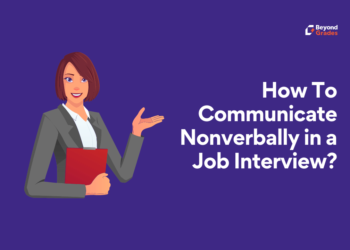[ad_1]
Obtaining and remembering new information is an important practice that extends beyond school and into your professional life. Individuals can keep learning at work by enrolling in classes and studying on their own.
In this article will look at some of the most effective methods for studying and performing well with the knowledge you gain.
The following are the top ten study techniques and skills for effective learning –
Making the most of your study time will be easier if you develop good study habits. The ten study techniques plus study skills listed below will help you study more effectively and remember what you’ve learned.
1. Skill of Making Smart Notes
Take notes which are more than just a repetition of what you hear or read, whether you read a book or listen to a lecture.

Take notes on only what you need to, and don’t take notes on everything. Paying attention to what the instructor says is essential. Look for concepts with emphasis or section headings that can help you determine major concepts in a book.
Rewrite: Pay close attention to each concept before rewriting it in your own words. This not only demonstrates that you understand the concept, but it may also make topics more memorable to you when you think about them in your language.
Summarize: Review your notes and summarise each concept in a sentence or two. This will help to cement the information in your mind and make it easier to review your notes later.
2. Take Charge of Your Time
You may have lots of demands on your time as a student and a professional. Schedule study time into your weekly routine to ensure you have time to study throughout the week.
Make a list of everything you do every day. Look for low-priority tasks that you could be doing instead of studying. When scheduling your daily tasks, consider how much time you want to devote to each task, as well as how much time you can devote to studying.
Set regular goals for yourself in terms of what you want to accomplish during your study time. This way, you can prioritize your studies and make the most of your time.
3. Make a Mind Map
A mind map is a diagram that shows how ideas connect to the main concept. A mind map can be used to take notes or to organize and summarise them.

To make a mind map, follow these steps:
- Begin with an idea, such as “presentation skills.” It should be written in large letters in the centre of the page.
- Draw curved lines branching from the central idea and write a related idea on each line. Make your lines and related ideas clear, and leave space for others to add to your ideas. These ideas could include things like “software,” “communication skills,” “creating visuals,” and so on.
- Add more ideas to the branches of each of these related ideas. You could have four branches for “software,” each with the name of a possible slideshow or other software application you want to try.
Colour and images can help to make your mind map more vivid and memorable. As you move away from the main idea, make the words smaller and the lines thinner. This will allow you to see the connections between them and which ideas are more important.
4. Give Yourself a Lecture
After you’ve finished taking notes, repeat what you’ve just learned aloud, as if you were giving a lecture on the subject. In your own words, explain the concept.
Don’t be concerned if you get stuck or forget something. Part of the exercise is to help you identify areas where you are unclear so that you can go over them again.
According to studies, engaging more than one of your senses increases your chances of remembering things. By lecturing yourself, you include both hearing and seeing. Using your voice and words enhances the meaning of the information for you.
5. Educate others
When you can teach a subject to someone else, you know you truly understand it. Find a friend or relative who is willing to listen to you discuss the subject you’ve been studying.

Encourage them to ask questions because this will help you determine how well you understand the subject. You can also choose a study partner who is interested in the same subject as you. You can then talk about it and reinforce or correct each other’s understanding.
6. Make it Rhyme
Find a way to turn what you’re trying to learn into a memorable rhyme. Try putting a tune to your rhyme if you’re musical. Music can be a very effective memory aid. People frequently find it easy to recall the lyrics to their favourite songs.
7. Strengthen Your Skills by Reinforcing

When you reinforce something, you keep studying even if you think you already know it. Don’t, for example, stop practising your flashcards after the exam. Continue to interact with the study material over time if you know you will need to retain the information in the long run. When you reinforce your understanding, you significantly strengthen your grasp on the subject.
8. Divide Your Study Time into Smaller Chunks
It is tempting to study for extended periods of time, especially if you have a test the following day. It is, however, preferable to divide your study time into short bursts. Instead of attempting to study for three hours, plan to study in three one-hour sessions with breaks in between.
Your brain can process the knowledge you gained or the information you studied during those breaks. Those breaks also allow your brain to rest, allowing you to focus better when you return to studying.
9. Inquire Questions
Write down any or all questions that come to mind as you read or listen. Continue reading or listening for answers to those questions. Make a note of any answers you find.

If you find gaps in your knowledge that don’t have ready answers, do some research to see if you can find out about the information yourself. This kind of active participation in the topic will help you remember what you’ve read or heard.
10. Put Yourself to the Test
Each chapter of your textbook may contain study questions. If this is the case, answer them as part of your study time. You can also create flashcards to test your knowledge of key phrases or concepts. This type of self-testing helps to exercise your memory so that you retain and retrieve information quickly.
Conclusion
Effective study necessitates both time and discipline. You can make the most of your study time and remember what you learn if you have these study skills and study techniques.
Also Read:
Mentor Monkey aims to provide the best social learning ecosystem for career aspirants and professionals to help millions of young minds ace in their career and professional journey and discover their true valour. Join us now!
[ad_2]
Source link









